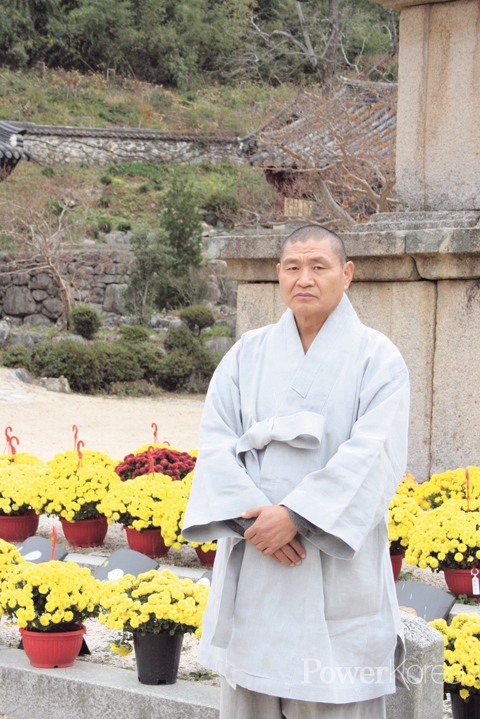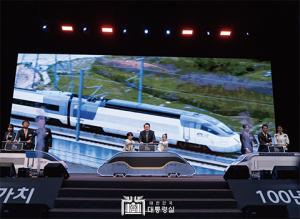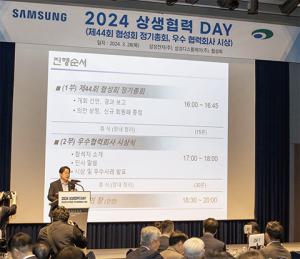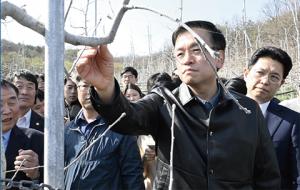 |
||
| ▲ Pyochungsa / Chief Monk Jingak | ||
Pyochungsa (temple) in Miryang City was established in 654 by monk Wonhyo. It was originally named Jukrimsa but monk Samyeong led a righteous army during the Japanese invasions of Korea (1592-1598) and the king rewarded the name Pyochungsa. Due to this and a number of other patriotic deeds, the temple has practiced tradition of a ritual offered to great monks Samyeong, Seosan and Kihuh since 1744.
“Monk Wonhyo built the temple in the current location of Miryang in a wish of unifying the Silla Kingdom. Miryang is often called as the Alps of Yeongnam, southeast part of the Korean Peninsula, and Pyochungsa is unique in terms of mixed culture and rituals of Korean Buddhism and Confucianism. Many a renowned monks left traces at the temple and many a legends also have been retold again and again. Also, the temple is rich in national treasures and tangible cultural assets of around 300 including a pagoda, lecture hall and pavilions” says the current chief monk Jingak.
Among many legends, monk Samyeong is worth mentioning: When the mountain people were captured by the Japanese army during the invasions, he met the Japanese generals face to face and talked in written words rather than mouth saying ‘do not kill people recklessly’; two of the generals were touched by the teachings of him and not only released the captured but also offered to Buddha for three days. It is also noteworthy that Samyeong took the lead of building castles in Palgongsan (mountain), Namhansan and Busan and persuaded surrendered Japanese soldiers to teach how to use rifles to Korean soldiers. When he was dispatched as an envoy to Japan for a negotiation he brought back home 35,000 Koreans captured with him. He entered Nirvana at Haeinsa (temple) in August 1610.
“Samyeong is famous for Buddhist spirit, strategies and bravery. He led the winning back of Pyongyang castle and bravely walked alone into enemy’s base for negotiation with the generals” says monk Jingak.
“Training oneself is not about something hard. Following the teachings of Buddha and living with good heart is but training. Being greedy is the beginning of unhappiness, anger calls illness and foolishness invites bad luck. But being humble calls joy and happiness. This is the teachings of Buddha and also of Sameyong.”
김태인 기자 red3955@hanmail.net







